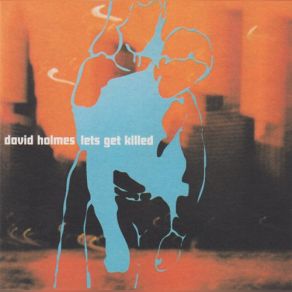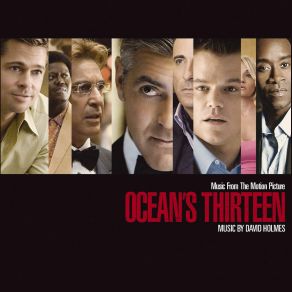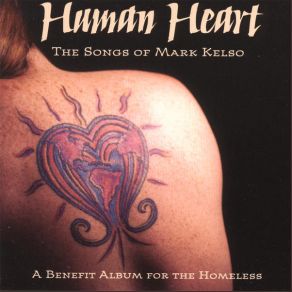David Holmes
Wikimp3 information about the music of David Holmes. On our website we have 40 albums and 57 collections of artist David Holmes. You can find useful information and download songs of this artist. We also know that David Holmes represents Alternative genres.
Biography
[Edit]David Holmes is the among the best in a growing cadre of invisible-soundtrack producers inspired by the audio verité of classic film composers — Lalo Schifrin, John Barry, Ennio Morricone — as well as the usual stable of dancefloor innovators and a large cast of jazz/soul pioneers to boot. Similar to the work of Howie B, Barry Adamson, and Portishead's Geoff Barrow, Holmes' productions are appropriately spacious and theatrical, though usually focused on future club consumption as well. His first album, hotly tipped in England, rose the stakes significantly for his second. Let's Get Killed hardly disappointed, gaining critical and artistic success given the constraints of instrumental dance music. The increased exposure even helped him hire in on Hollywood's bankroll to provide the score for the 1998 feature film Out of Sight.
Born in Belfast as the youngest of ten children, Holmes listened to punk rock as a child and began DJing at the age of 15 — his sets at pubs and clubs around the city during the next few years embraced a range of grooves including soul-jazz, mod rock, Northern soul, and disco. Holmes worked as an underground concert promoter and wrote a fanzine as well, though he was still just a teenager when the house and techno boom hit Britain in the late '80s. Soon he was integrating the new dance music into his mixing, and his club night Sugar Sweet became the first venue for serious dance music in Northern Ireland. Back-and-forth contact between England and Northern Ireland brought Holmes into contact with leading DJs Andrew Weatherall, Darren Emerson, and Ashley Beedle. After familiarizing himself with the studio, he began recording with Beedle (later of Black Science Orchestra) to produce the single "DeNiro" (as Disco Evangelists), a sizable dancefloor hit in 1992. The following year, his Scubadevils project (a collaboration with Dub Federation) appeared on the first volume of the seminal compilation series Trance Europe Express.
That first taste of success brought David Holmes much remixing work during 1993-1994, for Weatherall's Sabres of Paradise, St. Etienne, Therapy?, Fortran 5, Sandals, and Justin Warfield, among others. He later signed to Go! Discs and in 1995 released his debut album, This Film's Crap, Let's Slash the Seats. Besides the cinema-terrorist persona evoked in the title, the album featured other ties to the cinema: the single "No Mans Land" had been written in response to the controversial Guildford Four film In the Name of the Father. Television director Lynda La Plante ended up using many of the tracks from the album for her series Supply & Demand, and one track was used in the Sean Penn/Michael Douglas film The Game. Holmes' first proper soundtrack, the Marc Evans film Resurrection Game, appeared in 1997. The experience inspired Holmes to travel to New York and gather a wealth of urban-jungle environment recordings, compiled and mixed into his second proper album, Let's Get Killed.
He followed with the remix collection Stop Arresting Artists, and in 1998 scored Steven Soderbergh's A-list Hollywood feature Out of Sight with a prescient set of groove-funk. (The attention also earned him a place in Entertainment Weekly's list of the Top 100 Creative People in Entertainment.) His single "My Mate Paul" even featured as the theme music to the Sony Playstation game Psybadek. Essential Mix 98/01 followed later that year, and in 1999 This Film's Crap, Let's Slash the Seats was reissued with a bonus disc of rarities and unreleased tracks. Holmes issued his third studio effort, Bow Down to the Exit Sign, in September 2000. One year later, Soderbergh tapped him to produce another feature film soundtrack, for Ocean's Eleven, and it pushed a single — Elvis Presley's "A Little Less Conversation," as remixed by Junkie XL — into the charts (as well as the top spot in many countries).
Holmes' next project was a studio band, the Free Association, introduced on the 2002 mix album Come Get It, I Got It. On the record, Holmes mixed and matched older tracks with new productions from him and his lab-mate, Stephen Hilton. Late that same year, a full album of new tracks (David Holmes Presents the Free Association, which was reissued with a new track order in 2006) followed it onto the racks, and in 2004 Cherrystones: Hidden Charms came out. Holmes' original score for the film Ocean's 13 was released in 2007. This was followed by Holy Pictures in 2008. This was a next step in terms of the production aesthetic used during his Free Association period — he used a live band alongside a wealth of electronics, but he also wrote much more song-oriented material and did his own singing on the record, which made it controversial among fans. His first proper retrospective, The Dogs Are Parading: The Very Best of David Holmes, was released by UME in 2010.
Title: Gritty Shaker (Maxi-Single)
Artist: David Holmes
Genre: Breakbeat , Progressive Breaks, Eurobeat
Title: Robbing Mussolini (Soundtrack From The Netflix Film)
Artist: David Holmes
Genre: Theatre/Soundtrack
Title: This Films Crap Lets Slash The Seats
Artist: David Holmes
Title: The Dogs Are Parading - The Very Best of David Holmes, Pt. 2
Artist: David Holmes
Genre: Breakbeat , Electronica, Techno, Hip Hop/R&B, Soul, Rock, Dancefloor, Dance Pop, Alternative, Funk
Title: Let's Get Killed
Artist: David Holmes
Genre: Breakbeat , Electronica, Techno, Dancefloor, Dance Pop
Title: David Holmes presents The Free Association
Artist: David Holmes, The Free Association
Genre: Pop
Title: This Film's Crap, Let's Slash the Seats
Artist: David Holmes
Genre: Breakbeat , Electronica, Techno, Dancefloor, Dance Pop
Title: The Holy Pictures
Artist: David Holmes
Genre: Breakbeat , Electronica, Techno, Dancefloor, Dance Pop, Alternative
Title: Marlowe (Original Soundtrack)
Artist: David Holmes, Jon Batiste, Jade Vincent
Genre: Theatre/Soundtrack
Title: Come Get It I Got It: Introducing The Free Association
Artist: David Holmes, The Free Association
Genre: Soul, Nu Jazz, Theatre/Soundtrack, Funk
Title: Essential Mix 98 / 01 (By David Holmes)
Artist: David Holmes
Genre: Hip Hop/R&B, Soul, Avant Garde Jazz, Soul Jazz, Psychedelic Rock, Avant Garde Metal, Latin, Funk, Acoustic, Easy Listening
Title: Ordinary Love (Original Soundtrack)
Artist: David Holmes, Brian Irvine
Genre: Theatre/Soundtrack
Title: Ocean's Twelve (Music From the Motion Picture)
Artist: David Holmes
Genre: Theatre/Soundtrack
Title: Ocean's Thirteen (Music from the Motion Picture)
Artist: David Holmes
Genre: Electronica, Theatre/Soundtrack
Collections
Title: Cool Pop Music Artist
Title: Broadway Hopes and Dreams, Vol. One & Two
Genre: Jazz
Title: Mrs. Milligan, the Christmas Mouse
Genre: Kids
Title: Screensport
Genre: Rock
Title: Moon Under Water
Genre: New Age
Title: Cream Chilled Electronic (CD 2)
Genre: Electronica, Electro House, Club/Dance
Title: This Is... Big Beat (CD1)
Genre: Electronica
Title: Dream Dance Vol. 66 (CD1)
Genre: Trance, Dancefloor, Dance Pop
Title: Dream Dance Vol. 66
Genre: Euro House, Progressive House, Trance, Hard Trance, Progressive Trance, Electro
Title: Let'S Get Deeper Vol. 2
Genre: House, Deep House
Title: Dances Dream Lights
Genre: Club/Dance
Title: Club Sounds Vol. 64 (CD1)
Genre: Club/Dance
Title: NOW Affenstyle Dance
Genre: Dance Pop
Title: 40 Dance Alliance
Genre: Club/Dance, Pop
Title: Chilled Out Euphoria (CD1)
Genre: Ambient, Downtempo, Electronica
Title: Club Music Vol. 9 From Kulemina
Genre: Club/Dance
Title: 2013 Extended Clubbing
Genre: Club/Dance
Title: Music Dance Club 100 Edit
Genre: Club/Dance, Pop
Title: 2101 In 101
Genre: House, Trance, Techno, Drum & Bass, Club/Dance
Title: Club News Vol. 239 (CD2)
Genre: Dance Pop
Title: Club News Vol. 240 (CD1)
Genre: Dance Pop
Title: Millennium The Next Generation Vol. 18
Genre: House, Dancefloor, Club/Dance
Title: Club Sounds Vol. 65
Genre: House, Dancefloor, Club/Dance
Title: House 100 Lights Fire (CD1)
Genre: House
Title: Take Funk Music Club (CD1)
Genre: Electronica, House, Disco
Title: Mega Dance Record FM (CD2)
Genre: Dancefloor
Title: Limes Abstract
Title: Dancefloor Spring 2013 (CD2)
Genre: Club/Dance
Title: Remember Voice Roots
Genre: House, Techno, Progressive
Title: Selection Club Dance Sound
Genre: Dancefloor, Club/Dance
Title: 100 Tracks Connected
Genre: House, Electro House, Electro, Club/Dance, Progressive
Title: Ocean'S Eleven (Original Soundtrack)
Genre: Theatre/Soundtrack
Title: Saint Germain Lounge Rendez Vous
Genre: Electronica, House, Jazz
Title: Dope On Plastic! Volume 4
Title: Cool-Chillout (CD2)
Genre: Chill Out
Title: Lifestyle2 - Chill Lounge Vol. 2 (CD1)
Genre: Pop
Title: 15 Minutes (Original Soundtrack)
Genre: Theatre/Soundtrack
Title: Lifestyle2 - Bar Jazz Vol. 1 (CD2)
Genre: Vocal Jazz, Lounge
Title: Jon Hopkins - Late Night Tales
Genre: Ambient, Downtempo, Electronica, Experimental
Title: Clubbed To Death (CD03)
Genre: Breakbeat , Downtempo, Trip Hop, Electronica, House, Techno, Rock, Drum & Bass, Dancefloor, Club/Dance, Pop, Theatre/Soundtrack
Title: The Motel Life (Original Soundtrack)
Genre: Rock, Theatre/Soundtrack
Title: Clubbed To Death: 52 Leftfield Dance Classics (CD3)
Genre: Breakbeat , Downtempo, Trip Hop, House, Techno, Industrial, Electro, Indie Rock, Drum & Bass, Dub, Synth Pop, EBM
Title: Late Night Tales: Jon Hopkins
Genre: Electronica, House, Tech House, Hip Hop/R&B, Death Metal
Title: Classic Dad 3CD (CD3)
Genre: New Wave, Power Pop, Pop, Alternative, Indie
Title: 101 Drivetime 5CD (CD2)
Genre: Soul, Blues, Rock, Pop, Synth Pop, Alternative, Indie
Title: Logan Lucky 2017
Genre: Theatre/Soundtrack
Featuring albums
Title: The K&D Sessions TM
Artist: Kruder & Dorfmeister
Title: Music From The Motion Picture Ocean's Eleven
Artist: Ocean's 11 Soundtrack
Genre: Theatre/Soundtrack
Title: Music From The Motion Picture Ocean's Twelve
Artist: Ocean's 12 Soundtrack
Genre: Theatre/Soundtrack
Title: Acme - Plus
Artist: The Jon Spencer Blues Explosion
Genre: Electronica, Blues Rock, Experimental
Title: Casino Classics
Artist: Saint Etienne
Genre: Electronica, Rock, Punk Rock, Dancefloor, Pop, Dance Pop, Synth Pop, Alternative
Title: Fila Brazillia
Artist: Fila Brazillia, The Infesticons
Genre: Downtempo, Trip Hop, Electronica, Soul, Indie Rock, Disco, Funk, Experimental
Title: Collaborations And Others (Single)
Artist: Martina Topley - Bird
Genre: Electronica, Blues, Rock, Alternative
Title: Late Night Tales: Jon Hopkins
Artist: Jon Hopkins
Genre: Ambient, Downtempo, Electronica, House, Rock, Dancefloor, Dance Pop
Title: Logan Lucky (Original Motion Picture Soundtrack)
Artist: Various Artists
Genre: Theatre/Soundtrack
Title: Goss: The Flower of Cities - Houghton: The Light on the Edge
Artist: John Christopher. Williams
Genre: Classical
Title: Out Of Sight (Music From The Motion Picture)
Artist: Various Artists
Genre: Theatre/Soundtrack



























































































































